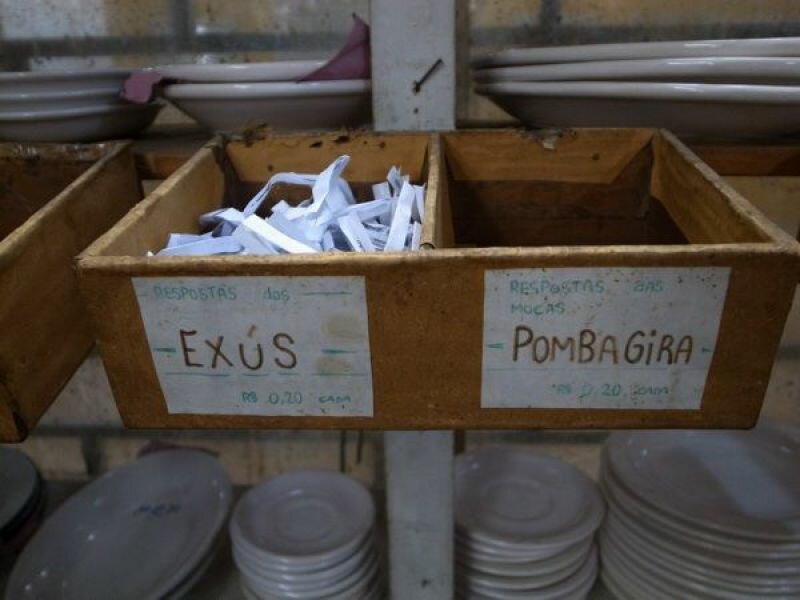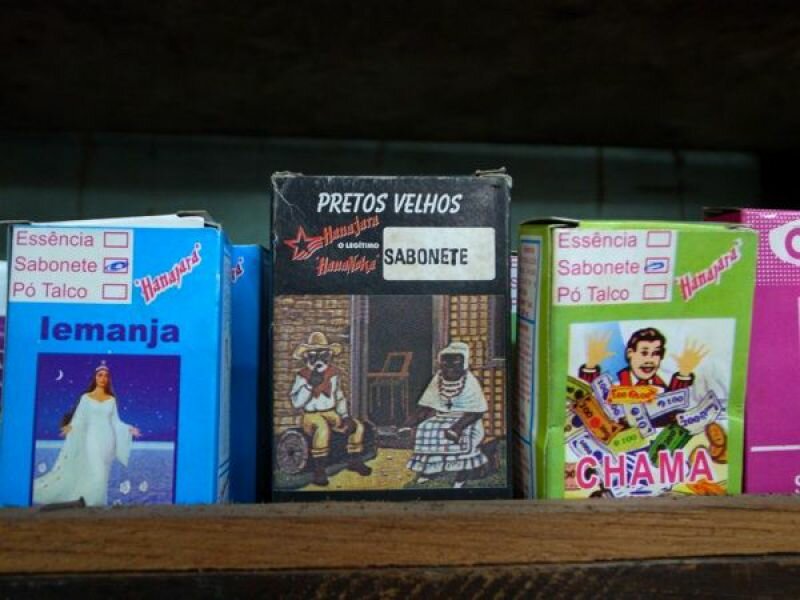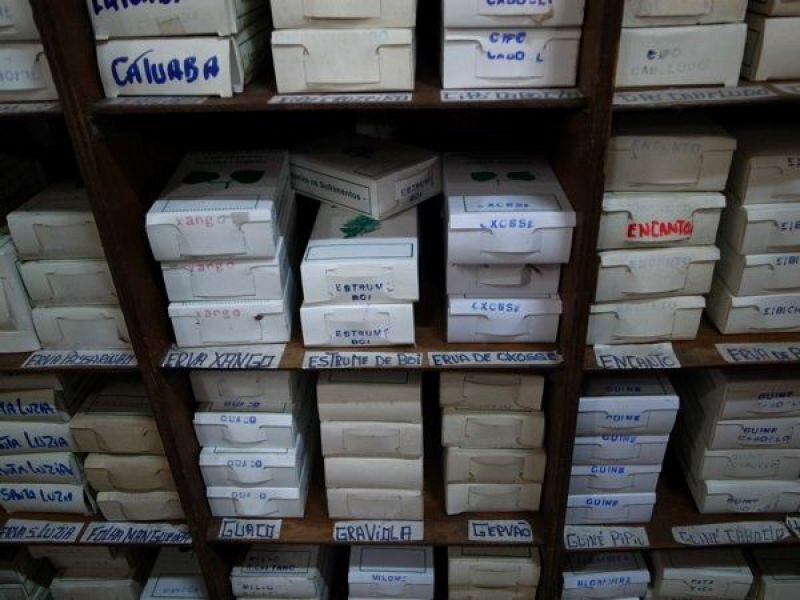
Sitting in the taxi I spot the sign ‘Ceramica’, and we jump out of car so we won’t miss it. This turns out to be a great decision, because this store is nothing less than an actual voodoo shop.
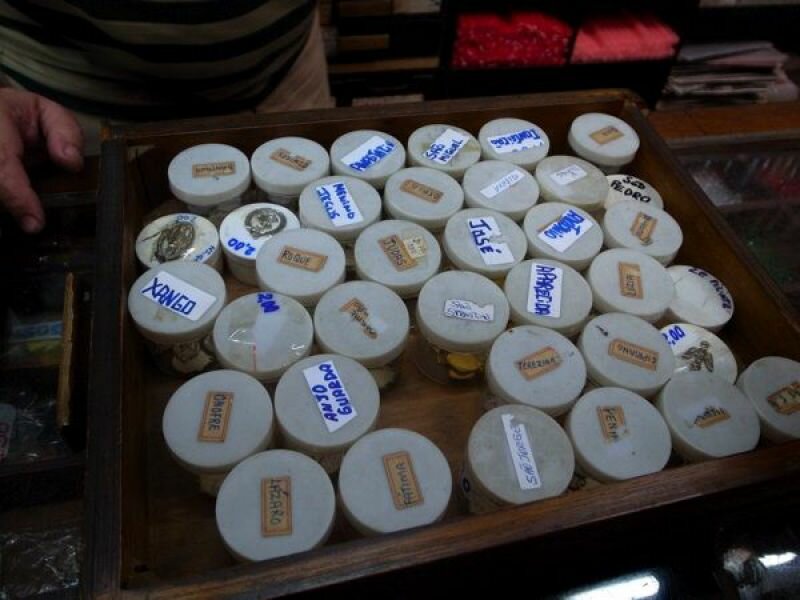
Behind the counter, the clerk stands wearing a checked shirt, looking calm and relaxed while walk around the shop. A man with glasses on enters the shop and carefully collects the items on the shopping list he’s holding. He leaves the shop with a pretty purple bundle held together by a ribbon. In this shop one can clearly see how old superstition and Christianity go hand in hand. Besides the various paraphernalia to practice voodoo, to predict the future, the small soaps to wash away your sins with, the drinks to ignite love; there are holy statues and protective amulets depicting saints.
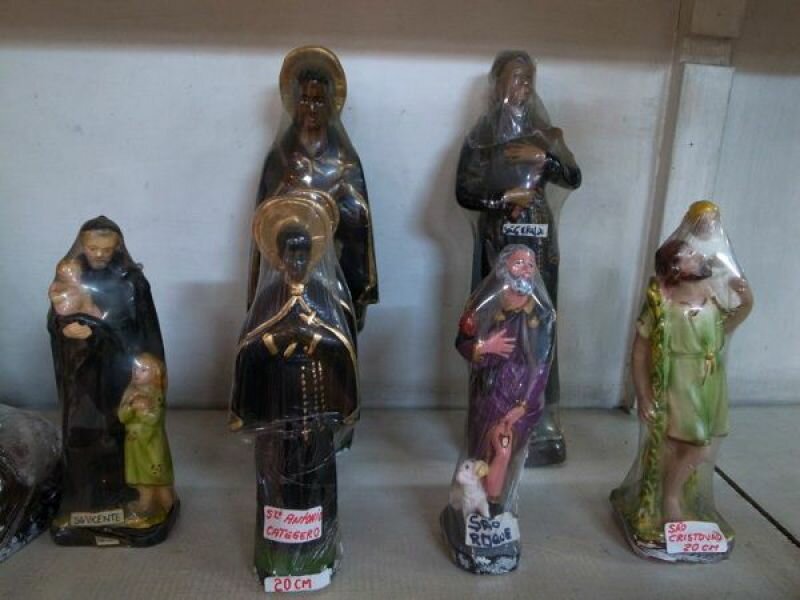
Brazil is officially Catholic, but the old animism carried over by the slaves from Africa is still abundantly practiced. During slavery, it was forbidden for slaves to practice their own religion. In order to still honour their own gods, they cloaked them with names of Christian saints. The god of the sea, Iemanja, for example, was attributed the Holy Maria as her alter ego and is exuberantly celebrated on December 31st. The ceramic statues are packed in plastic, set up in rows.
A sculpture of a little gagged black man conjures associations of SM, making one fear the worst. What evils could this little object induce? Yet, it turns out this trinket is nothing more than a protection piece in the form of the holy Anastacia wearing a mouth cover to protect herself from contagious illness. Likewise, the owner of the talisman will be protected from illness. I decide to buy it.
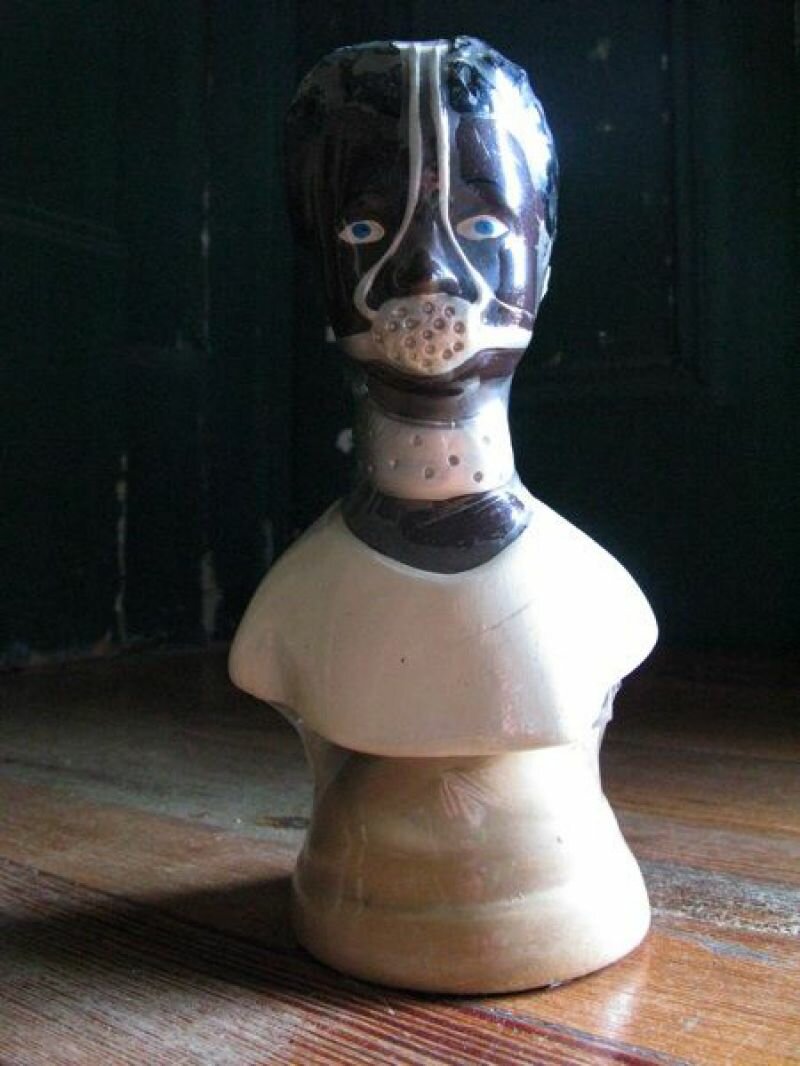
I also buy wax ex votos, these are images of body parts to be thrown in a fire and so beg protection over that part of the body. The baskets holding little notes folded into bows differ remarkably in popularity, the pombagira is sold out while the basket of exus is still completely full. (I can’t find an exact translation for pombagiras, but it seems to mean something similar to ‘receiving an answer’.) We both take a sorry note that describes in Portuguese how to perform the ritual of forgiveness.
